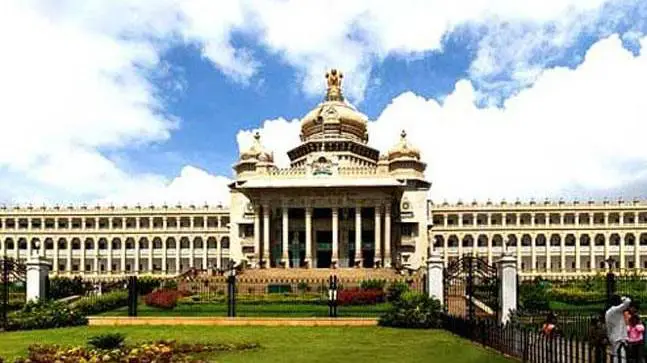Table of Contents
Dissolution of state assembly by Governor – Article | UPSC – IAS
Constitutional provisions of – Dissolution of state assembly article
- Article 172 says that every Legislative Assembly of every State, unless sooner dissolved, shall continue for five years.
- Article 174 (2) (b) of the Indian Constitution merely states that the Governor may, from time to time, dissolve the Legislative Assembly.
- Article 356 (“President’s rule”): In case of failure of constitutional machinery in State the President, on receipt of report from the Governor of the State or otherwise,
- May assume to himself the functions of the Government of the State
- Declare that the powers of the Legislature of the State shall be exercisable by or under the authority of Parliament
- With Respect to J&K Constitution: The powers under Section 92 (failure of constitutional machinery) and Section 52 (provides for dissolution of assembly) were invoked for this move.
Issues related to Dissolution Powers | UPSC – IAS
- Lack of Objective Criteria for untimely dissolution: While Article 174 gives powers to the governor to dissolve the assembly, but the Constitution is silent on as to when and under what circumstances can the House can be dissolved.
- Political reasons being cited for Dissolution: Potential for political instability in the future being cited as a reason in J&K to prevent emerging alliances is undemocratic in nature.
- Moreover, describing an alliance as opportunistic is fine as far as it is political opinion but it cannot be the basis for constitutional action.
Missing Political Neutrality in Governor’s Office | UPSC – IAS
- The post has been reduced to becoming a retirement package for politicians for being politically faithful to the government of the day. Consequently, the office has been used by various governments at the centre as a political tool to destabilise elected state governments.
- For e.g. Bihar State Assembly was dissolved by the governor in 2005 on apprehensions of “horse trading. Later the Supreme Court called the decision to be illegal and mala fide.
Suggestions on Dissolution of state assembly | UPSC – IAS
Sarkaria Commission
-
- The state assembly should not be dissolved unless the proclamation is approved by the parliament.
- Sparing use of article 356 of the constitution should be made.
- All possibilities of formation of an alternative government must be explored before imposing president’s rule in the state.
M M Punchhi Commission
-
- The governor should follow “constitutional conventions” in a case of a hung Assembly.
- It suggested a provision of ‘Localized Emergency’ by which the centre government can tackle issue at town/district level without dissolving the state legislative assembly
Supreme Court Judgements related to dissolution | UPSC – IAS
Bommai case of 1994
-
- The court accorded primacy to a floor test as a check of majority.
- The court also said that the power under Article 356 is extraordinary and must be used wisely and not for political gain.
Rameshwar Prasad case (2006)
-
- Bihar Governor’s recommendation for dissolving the Assembly the previous year was held to be illegal and mala fide
- A Governor cannot shut out post-poll alliances altogether as one of the ways in which a popular government may be formed.
- The court had also said unsubstantiated claims of horse-trading or corruption in efforts at government formation cannot be cited as reasons to dissolve the Assembly
Question: – The governor of the state can dissolve the legislature true or false or the governor can dissolve the legislative council of a state
Answer:- Yes, Governor can dissolve the Legislative Assembly if a motion of no confidence in the Premier and the other Ministers of State is passed.




